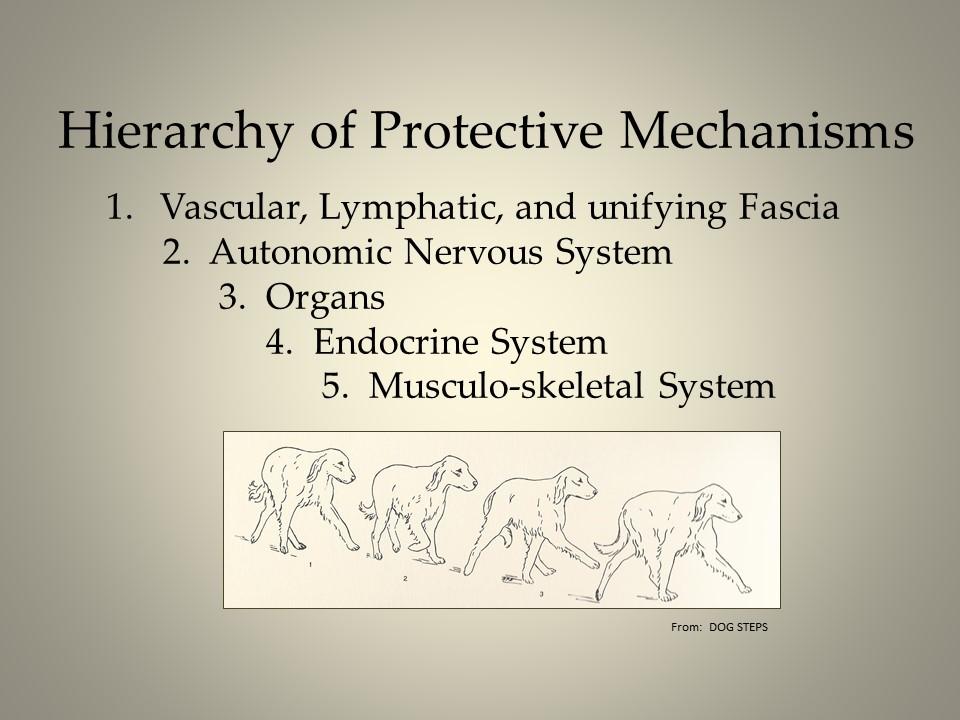

Now that we have determined where the Area of Greatest Restriction is located, we have to figure out WHAT problem we are dealing with. One of the principles of osteopathy is that we know that the body protects around a Hierarchy of Importance.
The body responds to an injury in a certain order to protect crucial parts of the body from damage and increase the chances for survival. Andrew Still, DO called this the “Rule of the Artery” because the blood supply is vital for every living creature. He felt that this hierarchy was essential for survival. For example, if the blood supply were compromised secondary to an injury, there would be limited life force available to help the body heal.
HIERARCHY OF IMPORTANCE
1. Vascular System (arterial/venous), Lymphatic System, and unifying Fascia (connective tisue)
2. Central, Peripheral, and Autonomic Nervous System
3. Organs (Viscera)
4. Endocrine System
5. Musculoskeletal System
But if a muscle is “stuck” in contraction (spasm), it is not moving anything and is protecting around something. The next step is to find out what that something is. Using the hierarchy model listed above while examining the AGR will help you decide the appropriate technique for the problem.
For example, a sub-lumbar muscle spasm (e.g. iliopsoas) may arise from a problem with nearby vascular structures (e.g. the aorta), nervous system structures (e.g. spinal cord and nerves), organs (e.g. kidneys and ureters); endocrine system (e.g. ovaries) or a problem with the muscle itself.
This diagnostic process is essential. “We cannot treat without knowing what we are treating! We learn through touch – thinking, feeling, seeing, knowing fingers.”
– Dr. Sutherland, DO
In summary: We use the musculo-skeletal exam to determine the area of greatest restriction using the concept of muscles are “movers” or muscles are “protectors“. When we have located the area of greatest restriction, we now apply the hierarchy of protection principle to determine what problem we have; e.g., a vascular, a lymphatic, etc., and from that, determine the appropriate technique to use.